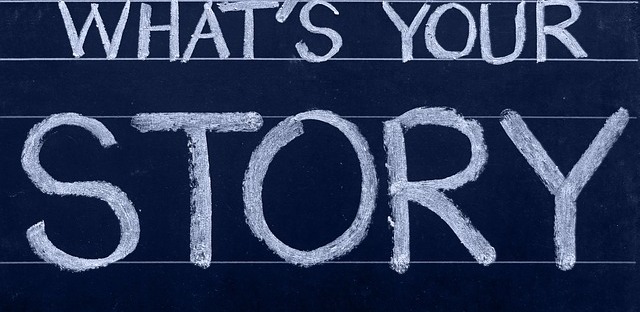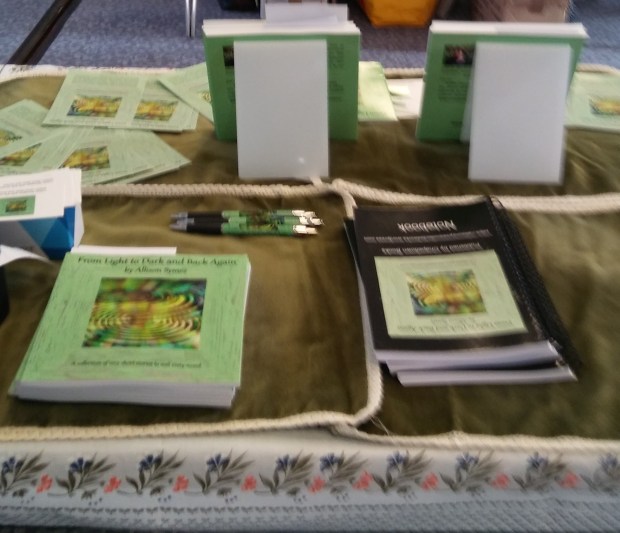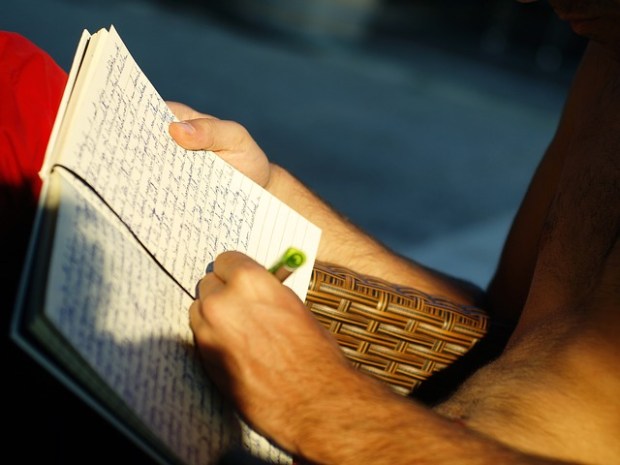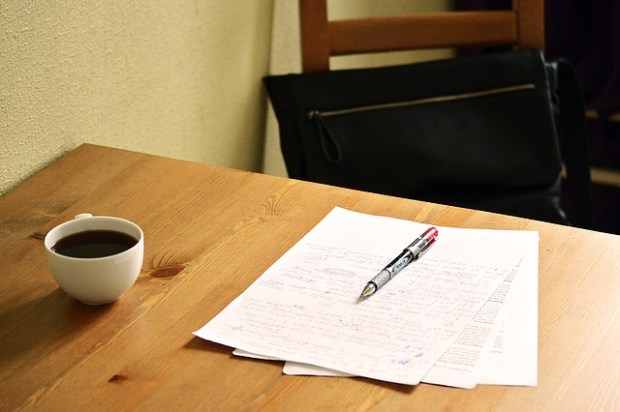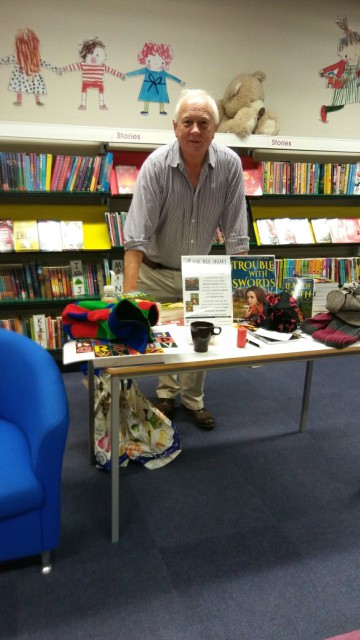A definite theme emerged tonight. Which do you find most difficult to write – the ending of a story or its beginning? I share some thoughts on both my Fairytales with Bite and This World and Others posts. Comments very welcome. And I would welcome questions coming in via the Goodreads Author Programme Q&A too.
Firstly, though:-
FACEBOOK – GENERAL AND CHANDLER’S FORD TODAY
This week’s Chandler’s Ford Today post looks back at YA author, Richard Hardie, and his book signing at Eastleigh Library last weekend. This was part of Cub/Brownie Uniform Day and, overall, part of the Love Your Library Week.
The post looks at what libraries can do (Richard’s report) and I share my thoughts on how writers and libraries need each other, as well as give a summary of the book signing event itself.
If you missed Richard at Eastleigh, then he will be at the Chandler’s Ford Book Fair on Saturday 28th October from 10 am to 12 noon, along with many other regional writers, including me. We hope we can see some of you there.
There will be a good range of books on offer from Richard’s YA fantasy books (Leap of Faith and Trouble with Swords) to my flash fiction (From Light to Dark and Back Again) to short story collections (Secret Lives and More Secret Lives of Chandler’s Ford) and many books and genres besides. Far too many to list here but that’s a very good thing!

Richard at work in Eastleigh Library, Image by Allison Symes

Richard, his dog, Oscar and my son, Daniel, were amongst my supporters at my signing earlier in the year. Image by Janet Williams, Chandler’s Ford Today’s lovely editor.

Richard and I will be two of the authors at the local Book Fair soon. Image via fellow Chandler’s Ford Writer’s Hub member, Cahterine Griffin.
Facebook – From Light to Dark and Back Again
One of the dilemmas I sometimes face when writing my flash fiction is knowing where to stop!
Sometimes I bypass this dilemma by writing a short piece (usually 100 words) and then, separately, extending the story out to a standard 1500 to 2000 word count later on if I feel the idea is strong enough to take this. (I then use those stories for standard short story competition entries).
I don’t do this too often as I’m usually well engrossed in the next story idea and I also think this solution is one best done sparingly anyway. You want generally to move on to the next idea, the next story etc. However, for a really strong idea, there is no reason why you can’t do this and have two stories based on a strong central premise. Waste not, want not!
The other way around this dilemma, which I use more often, is to work out which ending would have the most impact on the reader and at what point. I then leave the story at that point. You can’t go wrong with that method, I’ve found, but this is where putting work aside for a while pays dividends. You can then look at the piece with fresh eyes and read it as a reader would. It is only by reading it like that you can work out what that best impact point is in the first place!

My latest story is in The Best of Cafelit 6, recently published. The rest of the books shown here are where I’ve been published by Bridge House Publishing, Cafelit and, of course, Chapeltown Books. Image by Allison Symes

My last Bridge House story is in here. Naturally I hope there will be many more to come! Image supplied by Bridge House Publishing.
The links below take you to my Weebly websites with these posts but I have set up a slideshow on both not reproduced here.
FAIRYTALES WITH BITE
One of the joys of writing flash fiction is it doesn’t limit your possibilities with a very strong story idea. I have written a short piece (usually one of my 100-word tales and then, separately, extended the story at a later date to the standard 1500 to 2000 words required by most writing competitions. So I have two stories around one strong central premise. I like this!
I must admit I do this sparingly because I have usually moved on to the next story idea etc. (I also think it is something best done sparingly anyway and for your very best ideas only, otherwise you dilute your own work too much).
This situation comes about when I realise I am having problems working out where exactly to end a story. Do I leave it at the short punchy ending which suits flash fiction so well or do I extend the characters out (and the plot with them) and trust the right ending will emerge from that (it always does incidentally)?
My main method of working out the right story ending is to work out at which point the story has the most impact on the reader and that is where I leave the tale. Nothing more, nothing less, job done. For flash fiction, which aims to give short, sharp impressions on the reader, this is by far the best way of working out where to stop the story (I think).

One of my favourite stock images because it is so true. Image via Pixabay.
THIS WORLD AND OTHERS
My theme tonight has been the right story endings – right for your story that is, as all endings have to be appropriate for the tale and that can have so much variety. I can’t imagine Shakespeare’s Hamlet or Romeo and Juliet with happy endings (can you?!), but the way these plays finish is appropriate for the characters and the situations they are in as the Bard of Avon wrote them. (He also went for maximum impact on his audience, which ties in with my post Finding the Right Story Ending on my Fairytales With Bite site tonight).
So happy ever afters then? The classic ending for fairytales, usually but not always. Hans Christen Andersen proved with this with The Little Mermaid and The Little Match Girl in particular, which I guess I could describe as two of my favourite “weepies”. But, again, the endings are apt for the way he wrote the characters and the situations he put them in and I think this is what we should aim for with our own stories. Sometimes a happy ending will be appropriate, sometimes it won’t, sometimes the possibility of a happy ending to come beyond the life of the story is an apt way to finish, and sometimes a tragic solution is the only way to end the story.
So you need to ask yourself what would be the most appropriate finish for your story? Does it tie in with what we know of your characters? Does it have the maximum impact on your reader? The most important thing about endings is they have to be definite and definitive. Something about the ending must bring to a satisfactory conclusion what you have revealed about what your characters – this is where the “ring of truth” to fiction comes in.
Do you find writing the endings to stories more difficult than the start? Comments welcome!

Richard Hardie gave his talk from this wonderful rug at Eastleigh Library but I also thought it a good way to wrap up this post tonight. While I have talked about story endings, story beginnings can be difficult too, but for fairytales, you can’t beat this one! Image by Allison Symes
![]() 😁
😁











